

 Explorers, Scientists &
Inventors
Explorers, Scientists &
Inventors
 Musicians, Painters &
Artists
Musicians, Painters &
Artists
 Poets, Writers &
Philosophers
Poets, Writers &
Philosophers
 Native Americans & The Wild
West
Native Americans & The Wild
West
 First Ladies
First Ladies
 Popes
Popes
 Troublemakers
Troublemakers
 Historians
Historians
 Archaeologists
Archaeologists
 Royal Families
Royal Families
 Tribes & Peoples
Tribes & Peoples

Assassinations in History
Who
got slain, almost slain, when, how,
why, and by whom?
 Go to the
Assassination Archive
Go to the
Assassination Archive




Online History Dictionary A - Z

All-Time Records in
History
What was the
bloodiest battle, the battle with the least
casualties, who was the greatest military leader?
 Go to
Records in History
Go to
Records in History
|
|
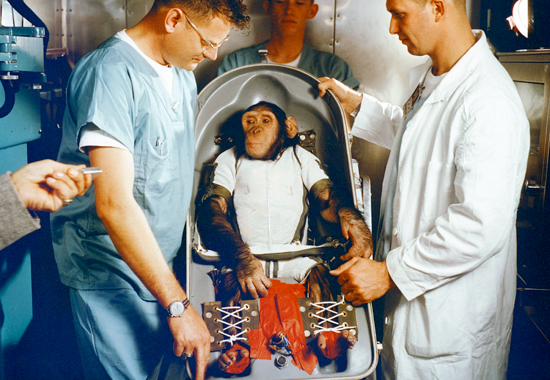
Ham Concentrating at Work
NASA
Astrochimp Ham
Ham was a chimpanzee. He worked for
NASA.
|
|
The photo above was
taken on January 1, 1961. Ham was three years
old and in the biopack couch for the MR-2 suborbital test flight.
Ham was in this position because he
was assigned to Project Mercury.
In other words, Ham and his team had
to figure out how to make manned spaceflights possible.
Was Ham's Mission
Important?
NASA tells us,
The
ladder NASA climbed to reach the Moon had three rungs of
achievement -- the Mercury, Gemini and Apollo programs.
The
first program, Project Mercury, was initiated on Oct. 7, 1958,
just six days after the founding of NASA. Its objective was to
orbit and retrieve a manned Earth satellite.
The Big Flight
On January 31, 1961, Ham made history
when he became the first primate in space.
|
A Mercury-Redstone launch from Cape
Canaveral carried Ham over 640 kilometers down range in an arching
trajectory that reached a peak of 254 kilometers above the Earth.
The mission was successful and Ham
performed his lever-pulling task well in response to the flashing
light. The successful flight and recovery confirmed the soundness of
the Mercury-Redstone systems.
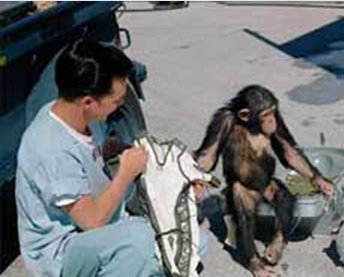
A little antsy before
his big flight: Ham trying to relax.
NASA
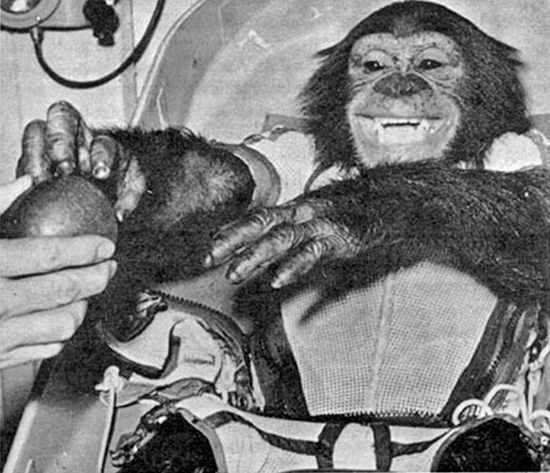
Heck of a Ride: Ham is
ready for his first food after 4 hours in the spacecraft.
NASA
But the competition worked around the
clock as well. On April 12, 1961, Yury
Gagarin became the first man in space.
Thanks to Ham and other chimpanzees and primates
employed by NASA, the Mercury Capsule was ready on May 5, 1961, when
Alan Shepard became the first
American in space.
The Mercury capsule, by the way, rode
atop a modified Redstone rocket, developed by
Dr. Wernher von Braun and the German Rocket Team in
Huntsville, Alabama.
This is Ham's colleague Enos.
On November 29, 1961, Enos went up for
two orbits. With the help of biosensors attached to Enos' body, he
managed to bring down some valuable data. His flight confirmed
normal bodily functions and motor abilities in weightlessness.
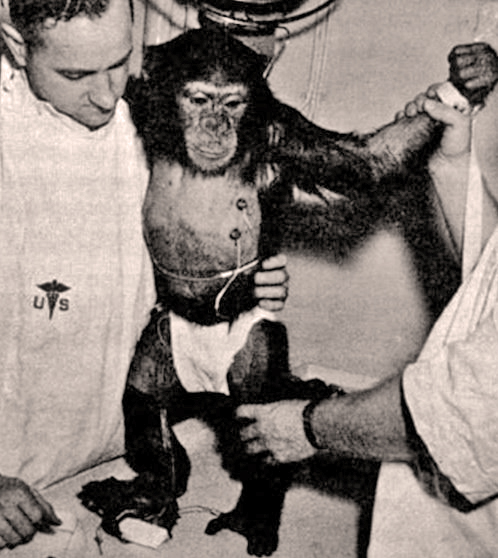
Enos Back from Space
NASA
And thanks to Ham and other pioneers, the
history of space travel developed rapidly:
-
In July 1969,
Neil Armstrong became the first to walk on the Moon.
-
Valery Polyakov
set a record in the category "longest
stay in space." All in all, Valery was
in space for 438 days, from January 8,
1994 until March 22, 1995.
-
Today and
with a little cash, you can book a ticket into
space yourself.
 Spaceport America in New Mexico gets you onboard. Spaceport America in New Mexico gets you onboard.
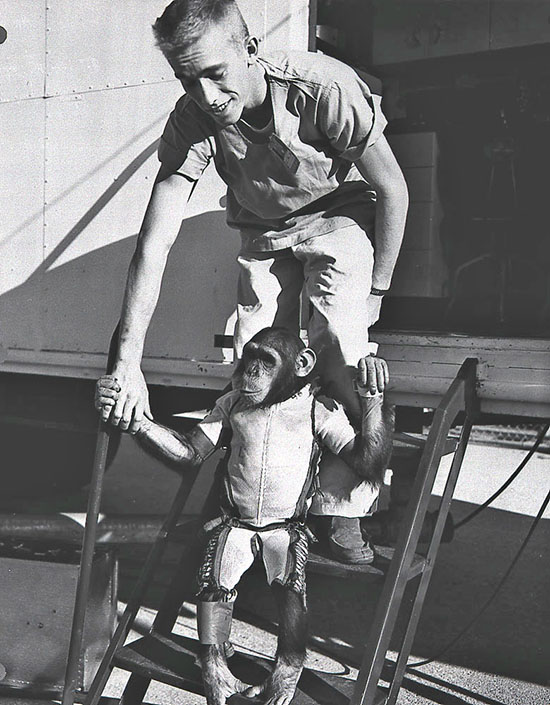
Ham all geared-up:
This is his spacesuit he would wear
for the MR-2 suborbital test
flight on January 31, 1961.
Photo taken on January 1, 1961.
NASA
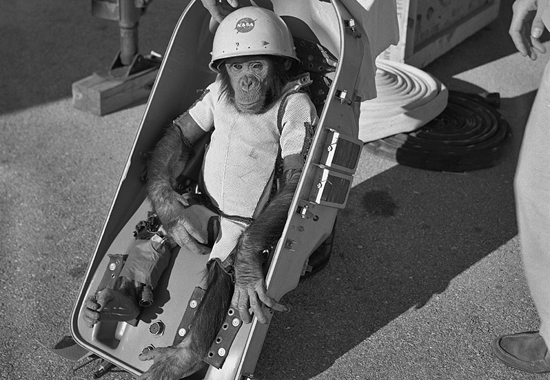
Astrochimp Ham - First Primate in Space
NASA
More History
|